Old Math Software
List of obsolete math software.
KriviznaPlus, KriDva
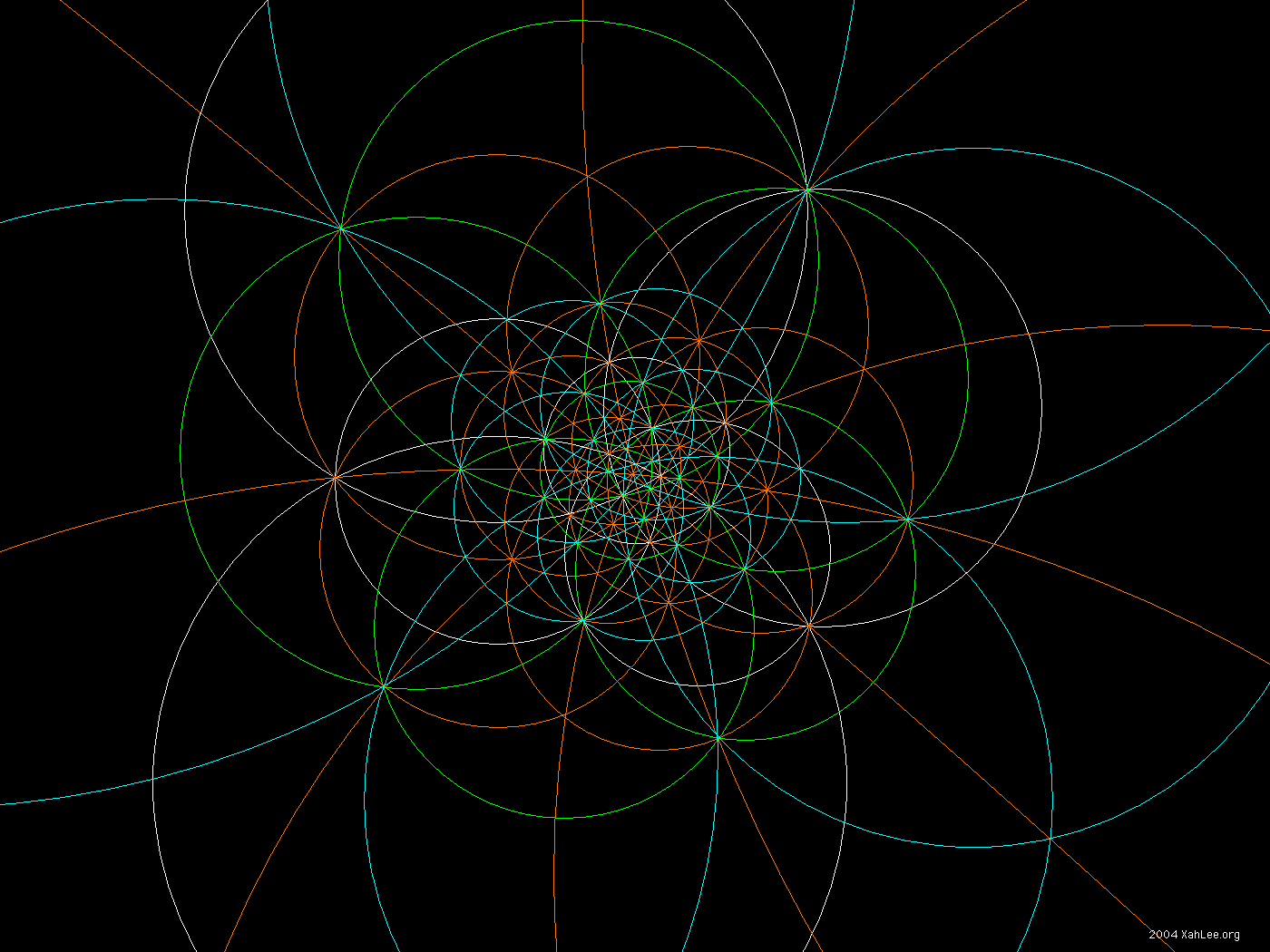
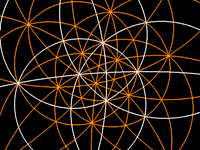
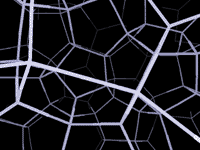
download at
http://www.hot.ee/bntren/Program.html
Windows
- by Viktor Massalogin.
- KriviznaPlus draws the Stereographic Projection from 3D to plane.
- KriDva draws the stereographic projection of S^3 sphere (x^2+y^2+z^2+z^2==r^2) to the 3D space.
- These programs are extremely fun and beautiful.
- I hope the author adds more explanations on the math.
- As of 2004, he added another version CPace.
stereop
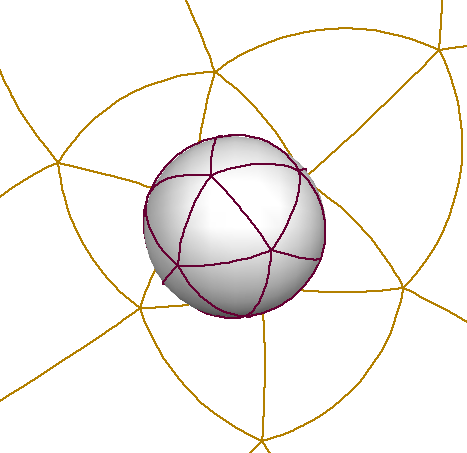
download at
http://torus.math.uiuc.edu/jms/java/stereop/
Java
stereop by mathematician John M Sullivan. This applet does Stereographic Projection of regular polyhedrons. User can choose any of cube, tetrahedron, octahedron, dodecahedron, icosahedron, and they are centrally projected onto a sphere. This sphere, is then stereo-graphically projected onto a plane. User can rotate the polyhedron, and see its image on the plane change accordingly.
xscreensaver
http://www.jwz.org/xscreensaver/screenshots/ Linux macOS Windows
xscreensaver by Jamie Zawinski is a screesaver for unix's X-Windows. A huge collection.
Fracture
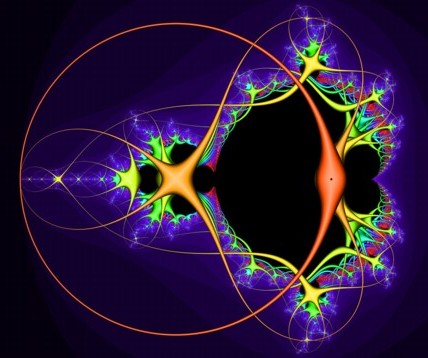
Fracture, a fractal-generating screensaver, by Ben Haller.
Ben is also the author of the famous AfterDark screensaver module Satori, Rose, Lunatic Fringe. (Satori is the mesmeric color changing pattern. Rose is the dotted pattern of the math Rose Curve).
FlowFazer
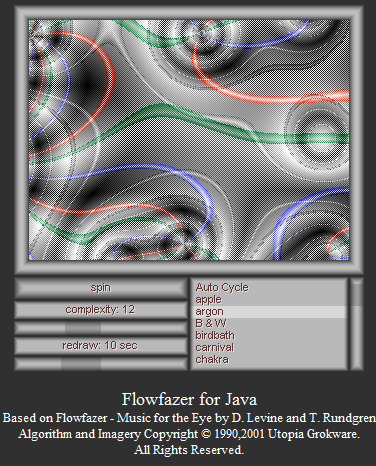
FlowFazer by David Levine.
at
http://www.grokware.com/Flowfazer.html
Java
iOS
Bulli Python (Parquet deformation)
http://www.acooke.org/jara/bulli/index.html
Bulli Python by Andrew Cooke.
This program generates Parquet deformation (gradual shifting of patterns). You need to be a python programer in order to install and use this program.